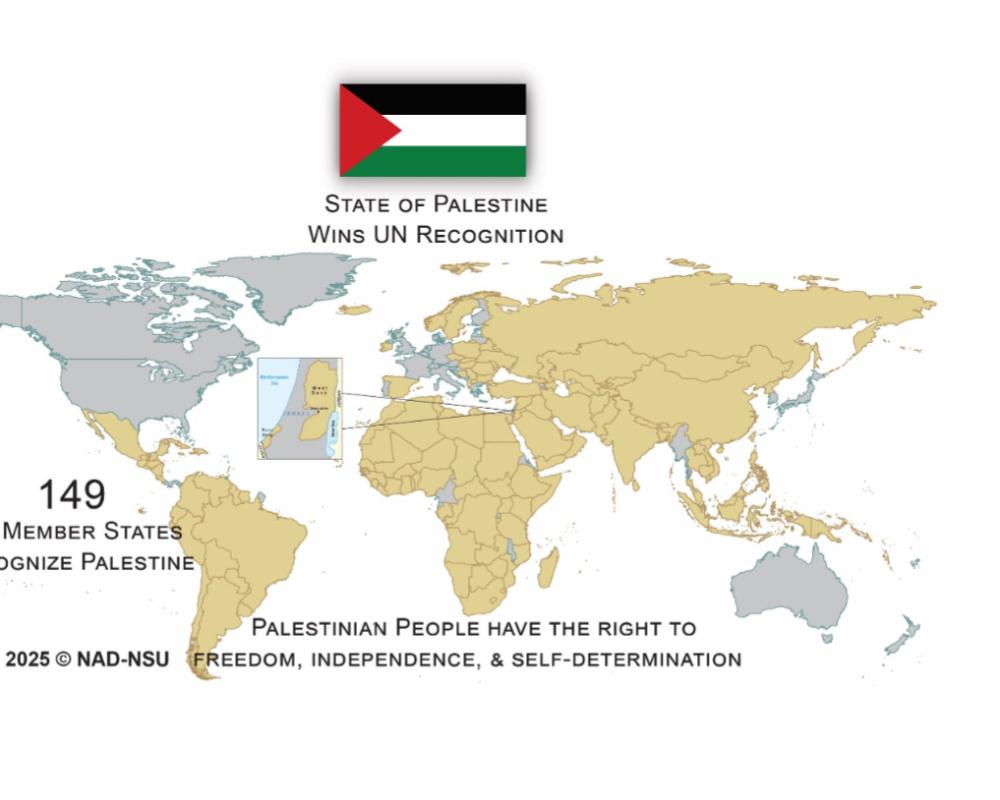
RAMALLAH / PNN /
The Palestinian leadership has issued a renewed and forceful appeal for full United Nations membership, asserting that recognition of the State of Palestine based on the June 4, 1967 borders with East Jerusalem as its capital is not only a political necessity but also a legal obligation and a moral imperative.
In a position paper released this month by the Negotiations Affairs Department of the Palestine Liberation Organization (PLO), Palestinian officials argue that the prolonged denial of Palestine’s full recognition violates international law and undermines the two-state solution. The document calls on the international community—particularly members of the UN Security Council—to move beyond symbolic support and formally endorse Palestine’s full membership in the UN.
Legal Foundation for Statehood
The report emphasizes that Palestine meets all legal criteria for UN membership under Article 4 of the UN Charter, which requires that a state be peace-loving and capable of fulfilling the obligations of the Charter. Declared in 1988 and now recognized by 149 UN member states, Palestine has acceded to over 100 international treaties and conventions. Global financial institutions such as the World Bank and IMF have repeatedly affirmed the State of Palestine's institutional readiness for sovereignty, despite severe constraints imposed by Israeli military occupation.
International law, the report asserts, firmly prohibits the acquisition of territory by force—a principle enshrined in UN Security Council Resolutions 242 and 2334. These resolutions call for Israeli withdrawal from occupied territories and declare Israeli settlements in the West Bank and East Jerusalem illegal. The International Court of Justice has also condemned Israel’s prolonged occupation as a violation of international law, reaffirming that third-party states must not recognize or support any outcome resulting from such violations.
Palestinian officials reject claims that the 1995 Oslo Interim Agreement bars UN membership, stating that it is Israel—not Palestine—that has consistently violated its provisions through de facto annexation, settlement expansion, and demographic manipulation in East Jerusalem.
Political and Strategic Urgency
Three decades after the signing of the Oslo Accords, the Palestinian leadership argues that the diplomatic process has failed. Israeli settlements have tripled since 1993, and legislation supporting annexation has gained momentum in the Knesset, most recently with a July 23 vote favoring the annexation of the West Bank.
In Gaza, following a devastating Israeli military campaign that began in October 2023, over 59,000 Palestinians have been killed and more than 143,000 injured, according to Palestinian estimates. Humanitarian access remains severely restricted, deepening what the report describes as a man-made catastrophe.
The paper contends that international recognition of Palestinian statehood is not a replacement for negotiations but a necessary foundation for them. It argues that recognizing Palestine rebalances the diplomatic process, sets a legal baseline for future land swaps, and strengthens the framework for a two-state solution.
A Moral Responsibility
Beyond legality and diplomacy, the paper underscores a moral imperative: the Palestinian people have endured 77 years of dispossession and 58 years of military occupation. Gaza has been under blockade for more than 17 years. According to the PLO’s Negotiations Affairs Department, continued delay in recognition perpetuates impunity and undermines the international legal order.
“Recognition is a message to Palestinians that their rights are not forgotten, and to the region that international norms still matter,” the paper states.
Toward Sovereignty and Accountability
Full UN membership would allow Palestine to fully engage in international institutions, access legal mechanisms to hold violators accountable, and support state-building reforms. It would also shift international donor priorities from short-term humanitarian relief to sustainable development, enhancing Palestinian governance in fields such as revenue management, border control, and judicial independence.
“No Peace Without Recognition”
The paper concludes that the time for action is now. Recognizing the State of Palestine is a concrete step toward peace, justice, and stability. “Sovereignty stems from law, not power,” the report reads. “The international community must draw a clear line between national rights and military might.”
The call comes as international efforts to end the war in Gaza continue and momentum builds for a major diplomatic initiative at the United Nations General Assembly this September, where multiple member states—including France—have indicated readiness to support Palestine’s bid for full UN membership.